Book Launch: Peripheral Nerve, Health & Medicine in Cold War Latin America
When and Where
Speakers
Description
Join us for a remote conversation with the editors of "Peripheral Nerve" Anne-Emanuelle Birn and Raúl Necochea López + other contributors, moderated by Luis van Isschot.
About this Event
Buenos Aires psychoanalysts resisting imperialism. Brazilian parasitologists embracing communism as an antidote to rural misery. Nicaraguan revolutionaries welcoming Cuban health cooperation. Chilean public health reformers gauging domestic approaches against their Soviet and Western counterparts. As explored in Peripheral Nerve, these and accompanying accounts problematize existing understandings of how the Cold War unfolded in Latin America generally and in the health and medical realms more specifically.
Bringing together scholars from across the Americas, this volume chronicles the experiences of Latin American physicians, nurses, medical scientists, and reformers who interacted with dominant U.S. and European players and sought alternative channels of health and medical solidarity with the Soviet Union and via South-South cooperation. Throughout, Peripheral Nerve highlights how Latin American health professionals accepted, rejected, and adapted foreign involvement; manipulated the rivalry between the United States and the USSR; and forged local variants that they projected internationally. In so doing, this collection reveals the multivalent nature of Latin American health politics, offering a significant contribution to Cold War history.
About the Editors
Anne-Emanuelle Birn is Professor of Critical Development Studies and Global Health at the University of Toronto. Her research explores the history and political economy of international health in Latin America. Her books include Marriage of Convenience: Rockefeller International Health and Revolutionary Mexico and Oxford’s Textbook of Global Health.
Raúl Necochea López is Associate Professor of Social Medicine and Adjunct Associate Professor of History at the University of North Carolina, Chapel Hill. He is the author of A History of Family Planning in Twentieth Century Peru, and is presently studying the history of cancer care in the Andes region.
About the Moderator
Luis van Isschot is Associate Professor of History at the University of Toronto. A historian of modern Latin America, he specializes in the study of social movements, popular radicalism, political violence and human rights. His newest research project concerns Latin American participation in global anti-colonial movements in the 1960s and 1970s.


